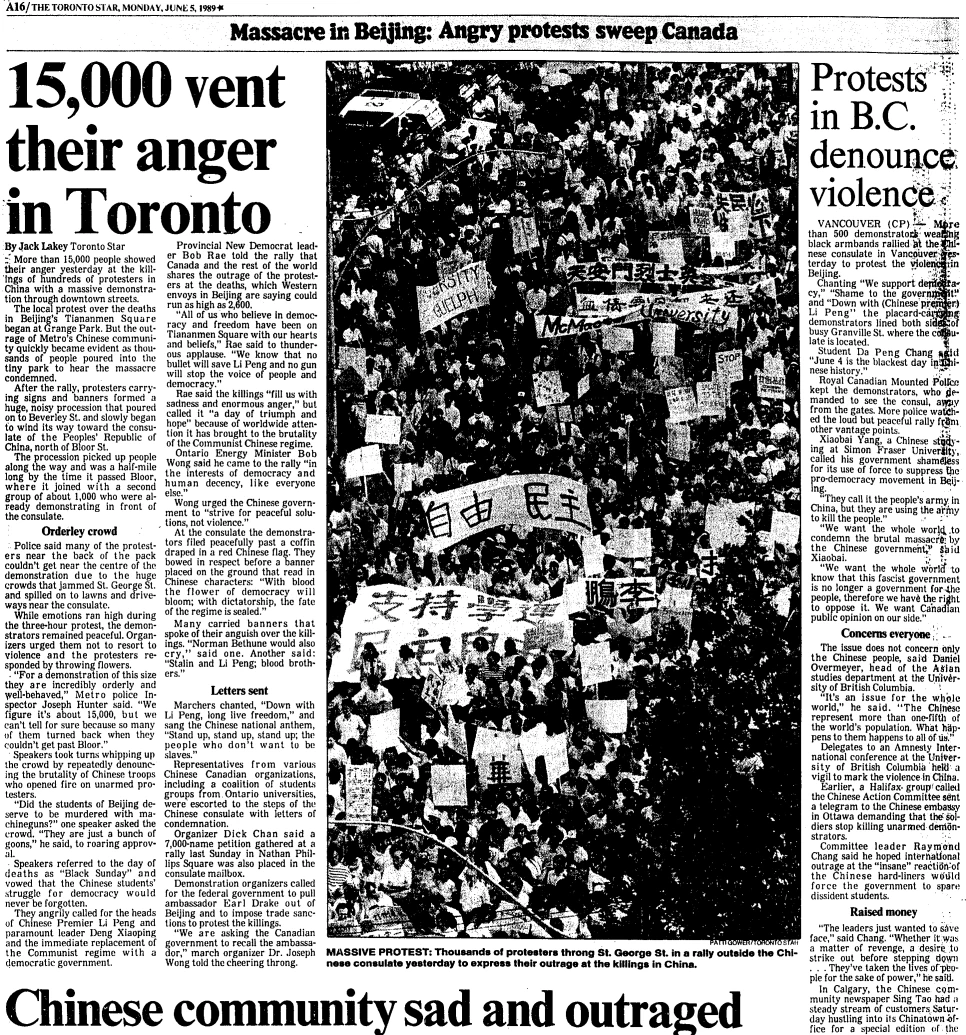
Jun 4, 1989
Tiananmen Square Incident and Canadian Response
The Tiananmen Square incident was a series of protests and demonstrations in China in the spring of 1989 that culminated on June 3–4 with a forceful crackdown in Beijing. It is commemorated annually on June 4 and drew global condemnation. Canadians reacted strongly, holding street protests against the actions of China's government. In response, the Canadian government initiated humanitarian measures, notably easing immigration rules for Chinese nationals, especially students, already in Canada, allowing many to seek permanent residency. This event significantly strained Canada-China relations. The events were witnessed firsthand by Canadians in China at the time, many of whom continued to share their accounts and bear witness in the years that followed. Successive Canadian governments and politicians have maintained a stance of condemnation, frequently raising human rights concerns related to the incident.
Global Affairs

Jun 6, 1989
Immigration Response to Tiananmen Square and Diplomatic Sanctions
June 6, 1989: Canada immediately suspended removals of Chinese citizens and extended visa considerations following the Tiananmen Square massacre, a pivotal first step reflecting immediate humanitarian concern for Chinese nationals. Employment and Immigration Minister Barbara McDougall led this swift action. By June 16, this evolved into comprehensive policies, including extensions for students and visitors, Minister's Permits for Family Class, and pathways to permanent residency on humanitarian grounds or refugee status. By April 1990, over 7,600 Chinese applications for permanent residency were accepted. Concurrently, Canada imposed sanctions—banning military sales and suspending defense programs—demonstrating a stronger stance than some Western allies while aiming to preserve people-to-people ties with China amidst the crisis.
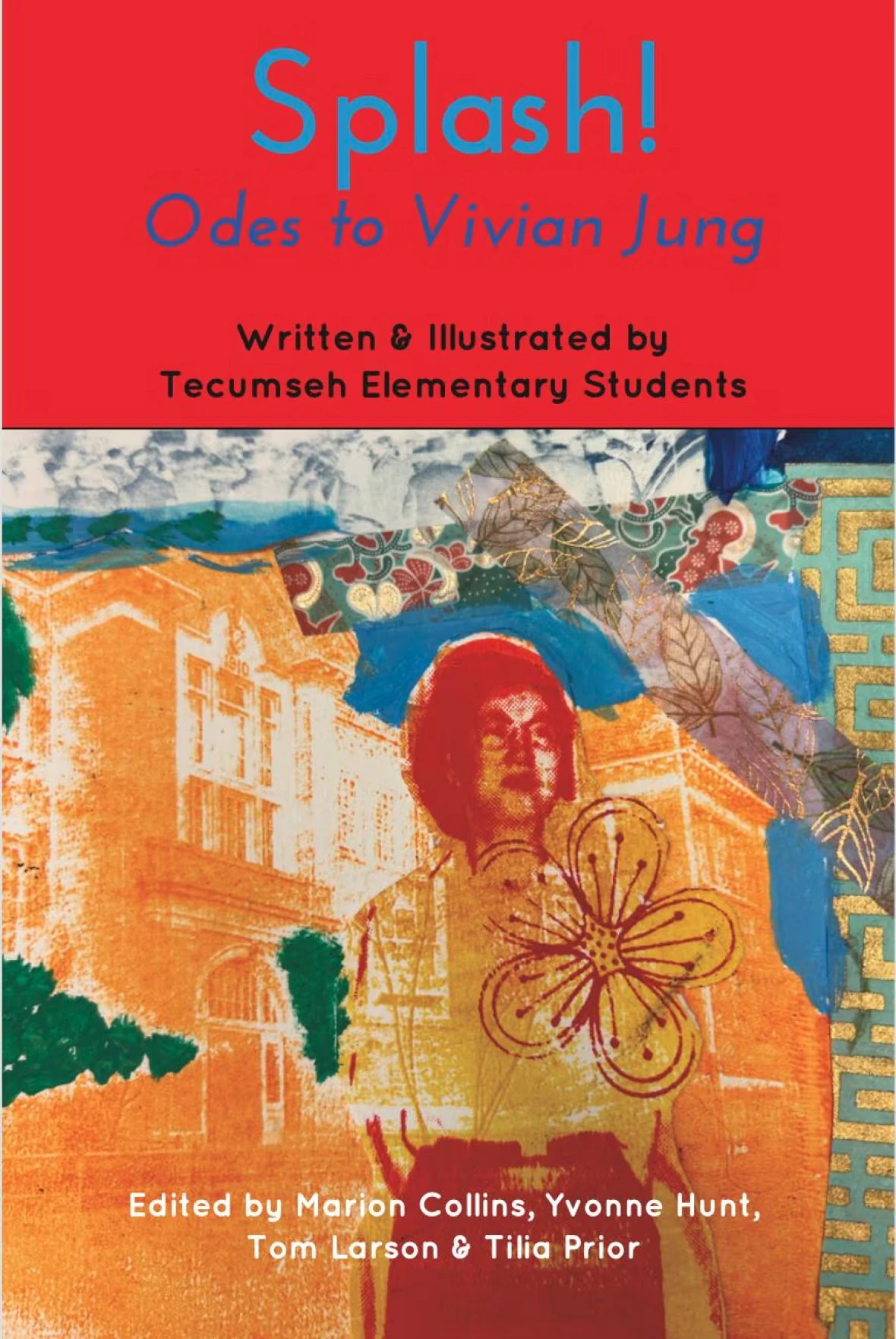
Jun 7, 1924
Vivian Jung: Pioneering Teacher & Anti-Segregation Advocate
Vivian Jung, born in Merritt, BC, on June 7, 1924 (died March 19, 2014), was a pioneering educator whose stand against racial discrimination at the Crystal Pool became a significant contribution to civil rights. She made history in 1950 as the first Chinese Canadian teacher hired by the Vancouver School Board, becoming a beloved fixture at Tecumseh Elementary School. A pivotal moment in her life, and for civil rights in Vancouver, occurred in 1945. While training to be a teacher, Jung was required to obtain a swimming certificate but was denied entry to Crystal Pool, the city's only public swimming pool, due to its colour bar. Supported by her coach and peers, her stand against this injustice sparked further protests, leading to the pool's desegregation later that year. Her courageous action positioned her as a leader in dismantling racial discrimination. Her legacy is a reminder about the power of standing up against injustice, and the importance of continuing to work toward a more inclusive society – a challenge still before us today in many ways.

Jun 16, 1980
Parliament Recognizes Chinese Immigrant Contributions
June 16, 1980, the Canadian Parliament unanimously passed a motion officially recognizing the significant contributions of Chinese immigrants to Canada's development and enrichment. This motion was an important, though largely symbolic, acknowledgment for the Chinese Canadian community. It specifically highlighted their pivotal role in building the Canadian Pacific Railway, often under severe discrimination and hardship, including perilous working conditions and lower pay. While not offering tangible redress for past injustices like the Head Tax (which would come later), this parliamentary recognition represented a growing awareness of the need to appreciate the multicultural fabric of the nation and the historical injustices faced by communities like the Chinese Canadians.
State Equity Effort
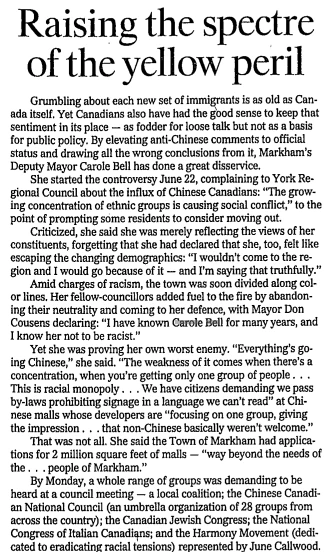
Jun 22, 1995
Markham Deputy Mayor's Anti-Chinese Comments Spark Controversy
June 22, 1995: Markham Deputy Mayor Carole Bell's anti-Chinese comments ignited controversy, showing official racism & fueling Chinese Canadian activism. Bell complained of a 'growing concentration of ethnic groups,' stating 'Everything's going Chinese,' and suggesting a 'racial monopoly.' Her remarks, defended by some council members, divided the town and drew condemnation from groups like the Chinese Canadian National Council and the Canadian Jewish Congress. The incident underscored the persistent challenges of racism and discrimination faced by Chinese Canadians, even from elected officials, and mobilized diverse community groups to demand accountability and combat racial tensions.
Racist Incident
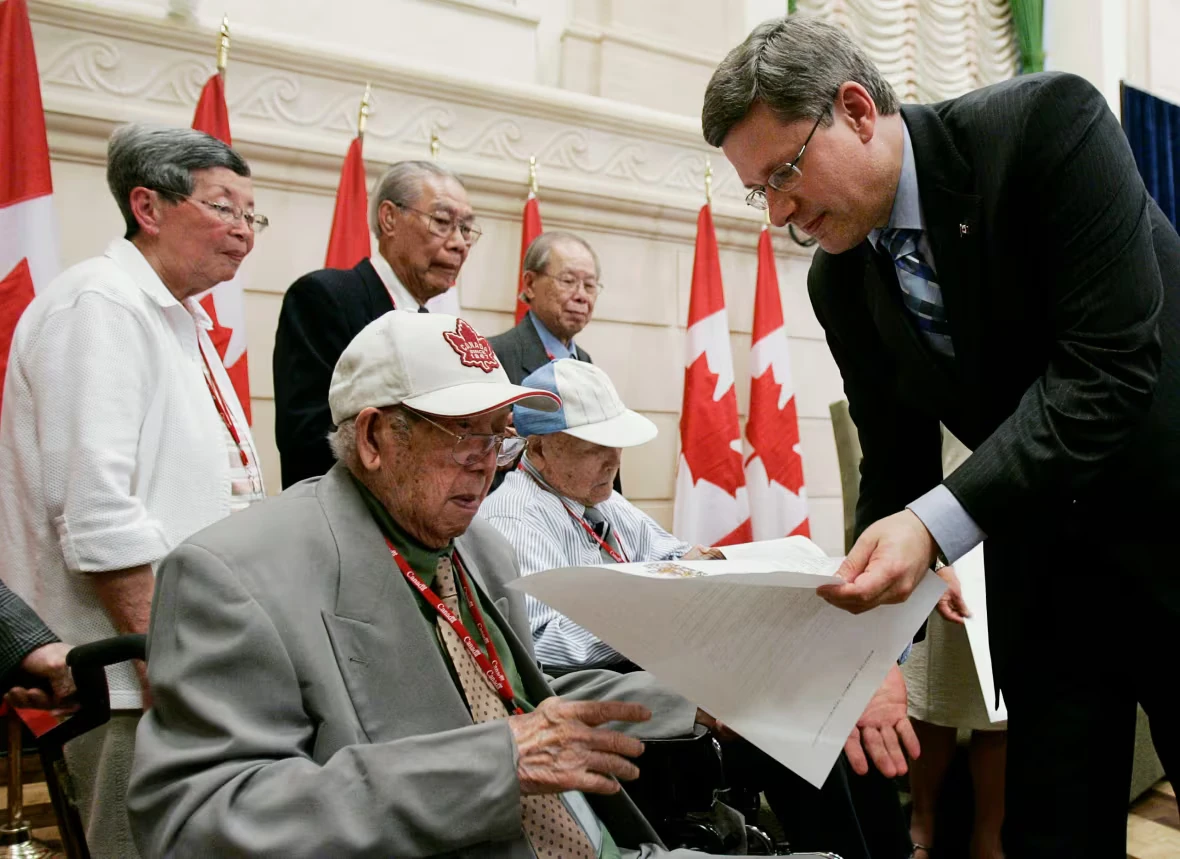
Jun 22, 2006
Prime Minister Harper Apology for Chinese Head Tax
June 22, 2006, Prime Minister Stephen Harper delivered a full apology in the House of Commons for the discriminatory Head Tax on Chinese immigrants (1885-1923) and the subsequent Chinese Exclusion Act (1923-1947). This was a momentous occasion for Chinese Canadians, whose families had suffered for generations under these racist policies. The apology acknowledged the profound injustice and suffering caused, recognizing the Head Tax and Exclusion Act as "tragic and unjust". Symbolic ex-gratia payments were offered to surviving head tax payers and spouses of deceased payers. This act of redress, long advocated for by the community, marked a significant step in acknowledging Canada's history of discrimination against Chinese Canadians.
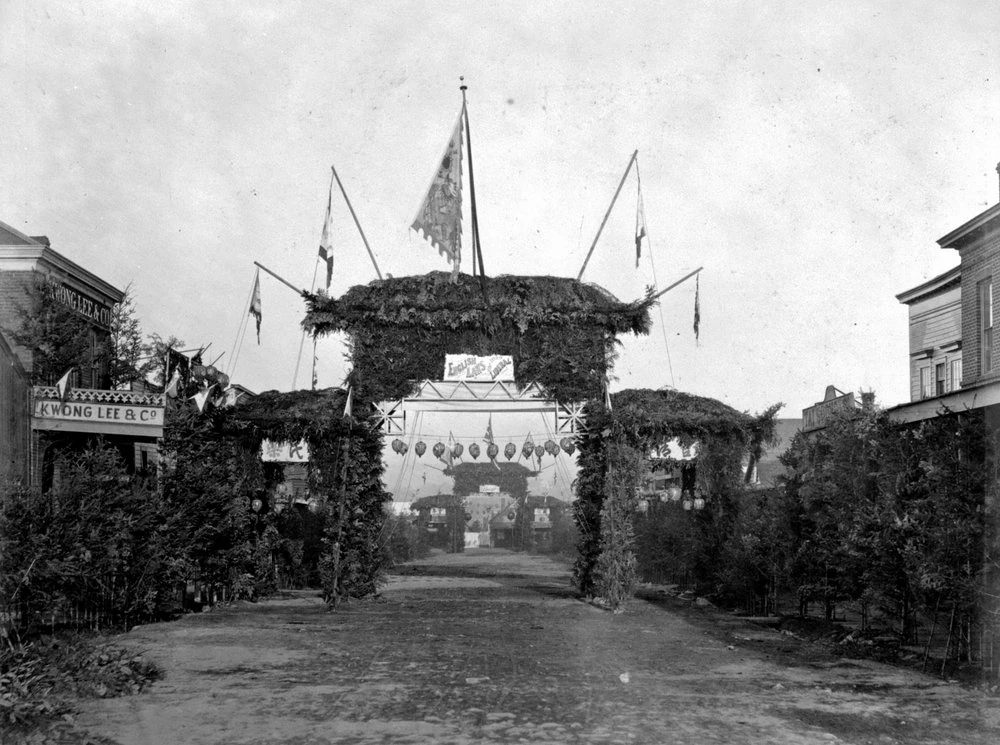
Jun 24, 1858
First Large-Scale Chinese Migration to Victoria
June 24, 1858: Victoria, BC, welcomed 300 Chinese men, the first large-scale Chinese migration to Canada, directly leading to Canada's oldest Chinatown. Their arrival, contracted by Hop Kee & Co. from San Francisco, marked the genesis of a vibrant community and Victoria's historic Chinatown. While many initially sought fortune in the goldfields, this laid the groundwork for a lasting Chinese presence, shaping the city's multicultural fabric and initiating subsequent waves of Chinese immigration, profoundly influencing British Columbia.

Jun 27, 2003
Canadian Multiculturalism Day Proclaimed
A proclamation was issued by Governor General Adrienne Clarkson designating June 27 of each year as Canadian Multiculturalism Day—“a celebration of the contributions of Canada's diverse people to Canadian society”. First observed on June 27, 2003, the day honours Canada's policy—enshrined in the 1988 Multiculturalism Act—to recognize and promote understanding of cultural diversity, appreciate all communities' contributions, and foster inclusion and mutual respect.